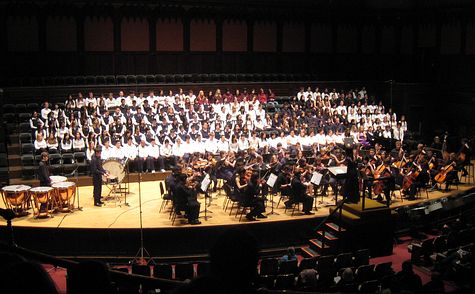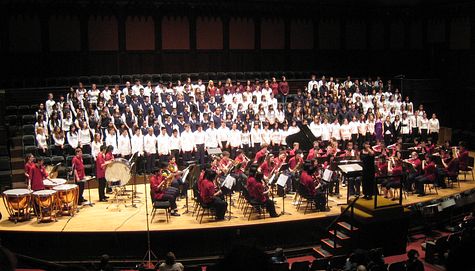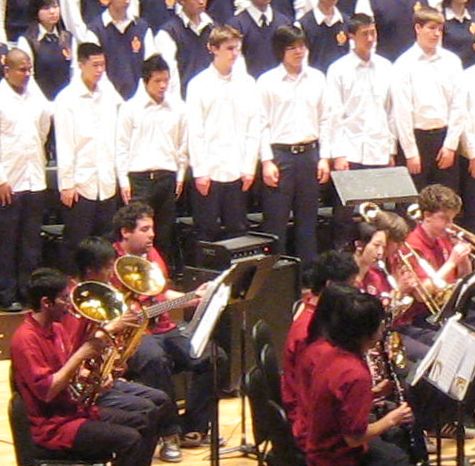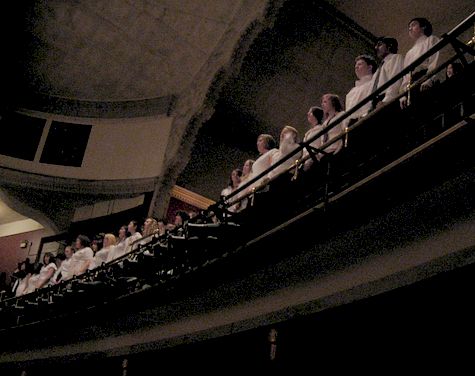All of our sons have had private music lessons, but not all have been interested in studying music at high school. At Riverdale Collegiate, Noah decided that he wanted to sing, and signed up for vocals class. The Toronto District School Board has a Spring Festival Concert at Massey Hall, where choirs, orchestras and wind bands from across the city perform. The number of musicians is many times the capacity of the stage, so the performance started with the choir seated as the orchestra performed the first pieces.
The orchestras and bands aren’t all of the same size, so moving chairs, music stands and the podium takes a few minutes. Noah performed with the junior choir.
With the dozens of musicians, it’s hard to see faces. Here’s a closeup.
When the choir came off the stage, they went up to the gallery. At the finale, all of the performers joined in.
The evening brings up a variation on an old joke. A man visiting visiting the city finds himself lost. He asks a passerby “How do I get to Massey Hall”? The passerby responds “Practice!”






